On August 22, Nanjing Medical University, the rotating chair of the Yangtze River Delta Medical Education Alliance, hosted a symposium on advancing first-class majors in Nanjing. The event featured notable attendees including Tang Bowen, Deputy Director of the Department of Higher Education, Ministry of Education, in charge of Agricultural, Forestry, and Medical Education, and Xu Qing, Director of the Higher Education Division of the Jiangsu Provincial Department of Education. The symposium was also attended by the rotating chair, President Hu Zhibin, Vice President Feng Feng of Nanjing Medical University, leaders from member institutions, and nearly 300 faculty representatives from universities within the alliance.
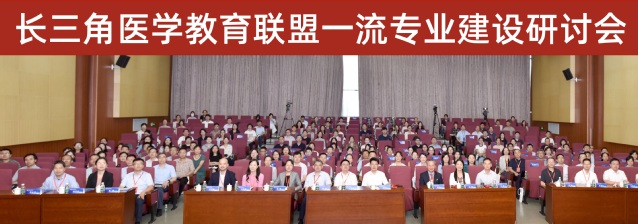
In his welcome address, President Hu Zhibin noted that, as the rotating chair of the alliance for its second term, Nanjing Medical University has made significant strides in advancing standardized and integrated training of medical innovation talents in the region, thanks to the strong support from member institutions. He praised the alliance’s efforts as exemplary in providing guidance and leadership. President Hu emphasized that the symposium's theme, “Digital Intelligence Innovation, Cross-Disciplinary Integration, and Empowering First-Class Major Construction,” addresses current challenges and opportunities in medical education and aligns with future educational reform trends. He stressed the need for medical education to adapt to the digital intelligence era by continuously innovating teaching methods, and deepening major construction to support the development of medical education and talent cultivation robustly.
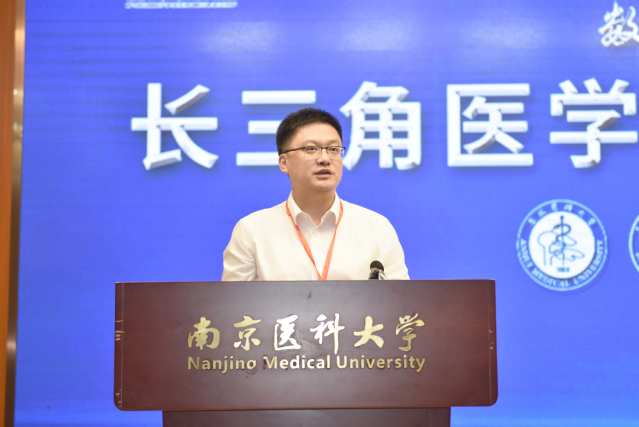
Director Xu Qing commended the alliance’s collaborative approach in integrating high-quality medical education resources and advancing educational development. He assured that the Jiangsu Provincial Department of Education would continue to support local medical universities’ participation in the Yangtze River Delta Medical Education Alliance. The goal is to foster the alliance's high-quality, sustainable growth while nurturing outstanding medical talents.
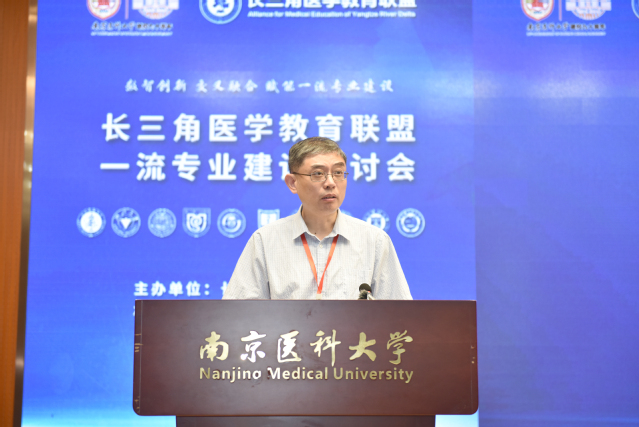
Deputy Director Tang Bowen, addressing the future medical education needs, provided strategic guidance for the alliance's ongoing work. First, he emphasized leveraging the alliance’s strengths to foster comprehensive, in-depth, and meaningful collaboration among member institutions. Second, he recommended prioritizing the creation of high-quality educational resources on a national scale. Third, he urged the alliance to lead in advancing innovative practices in medical education reform and to establish national demonstration zones in areas such as industry-education integration, science-education convergence, and collaborative talent development.
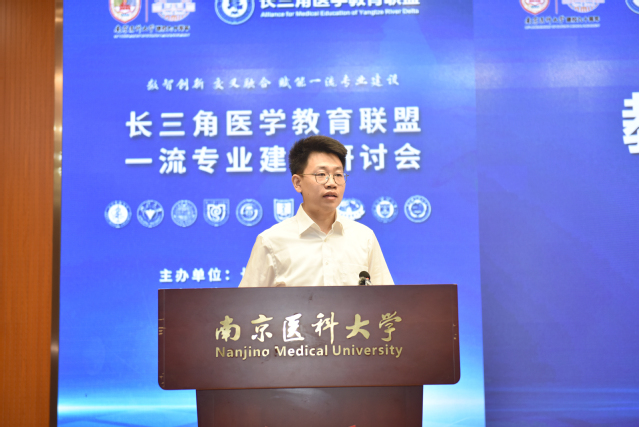
During the keynote session, Academician Fan Xianqun, Vice President and Dean of the School of Medicine at Shanghai Jiao Tong University (SJTU), delivered a report titled “Cross-Disciplinary Practices in Medical Education,” addressing the key challenges, opportunities, and goals in medical education while highlighting SJTU’s achievements. Professor Weng Jianping, President of Anhui Medical University (AHMU), presented on “Building a High-Quality Practical Teaching System to Promote Talent Cultivation in First-class Majors.” He detailed AHMU’s approach to developing its practical teaching system, focusing on the effective teaching pathways and enhancing support systems. Professor Zhu Xuebo, Vice President of Wenzhou Medical University(WMU), discussed “Driving Innovation to Strengthen High-Quality Undergraduate Program Systems,” sharing WMU’s experiences in enhancing top-level design, implementing talent classification and development plans, and continuously advancing the high-quality undergraduate program system. Professor Ying Songmin, Executive Vice President of Zhejiang University (ZJU), spoke on Focusing on Student Growth to Advance Independent Medical Talent Development.” He outlined ZJU’s strategy for creating a premier medical education system centered on student development and shared insights into reforms that enhance the effectiveness and quality of independent talent cultivation. Vice President Feng Feng of Nanjing Medical University presented a report titled “Uniting Efforts for Excellence: Nanjing Medical University’s Approaches to Cultivating Top Medical Innovation Talents.” He discussed the university’s proactive exploration of innovative models for developing exceptional medical talents, leveraging national platforms such as the 2.0 Base for Top-notch Students in Fundamental Disciplines and the National Key Laboratory for Reproductive Medicine and Child Health.
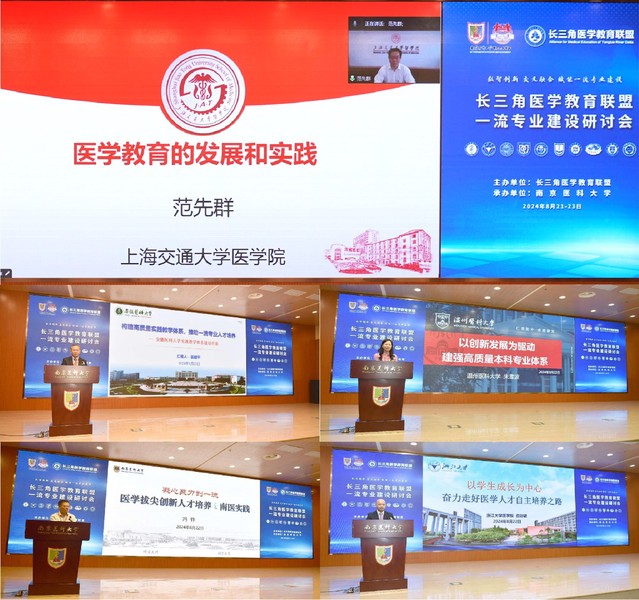
The conference also featured a handover ceremony, marking Zhejiang University’s succession of Nanjing Medical University as the new rotating chair unit of the alliance.

In the afternoon, the symposium hosted two thematic sub-forums: “First-class Courses” and “Program Accreditation.” Representatives from member institutions shared their experiences and achievements, engaging in in-depth discussions on these topics.
(Reported by Ding Jingjing and Xu Shuangjie; Images by Ma Liping, Chen Xiaowu, and Wang Jianwei; Reviewed by Yu Rongbin and Liu Ying; Translated by Zhang Bei)



